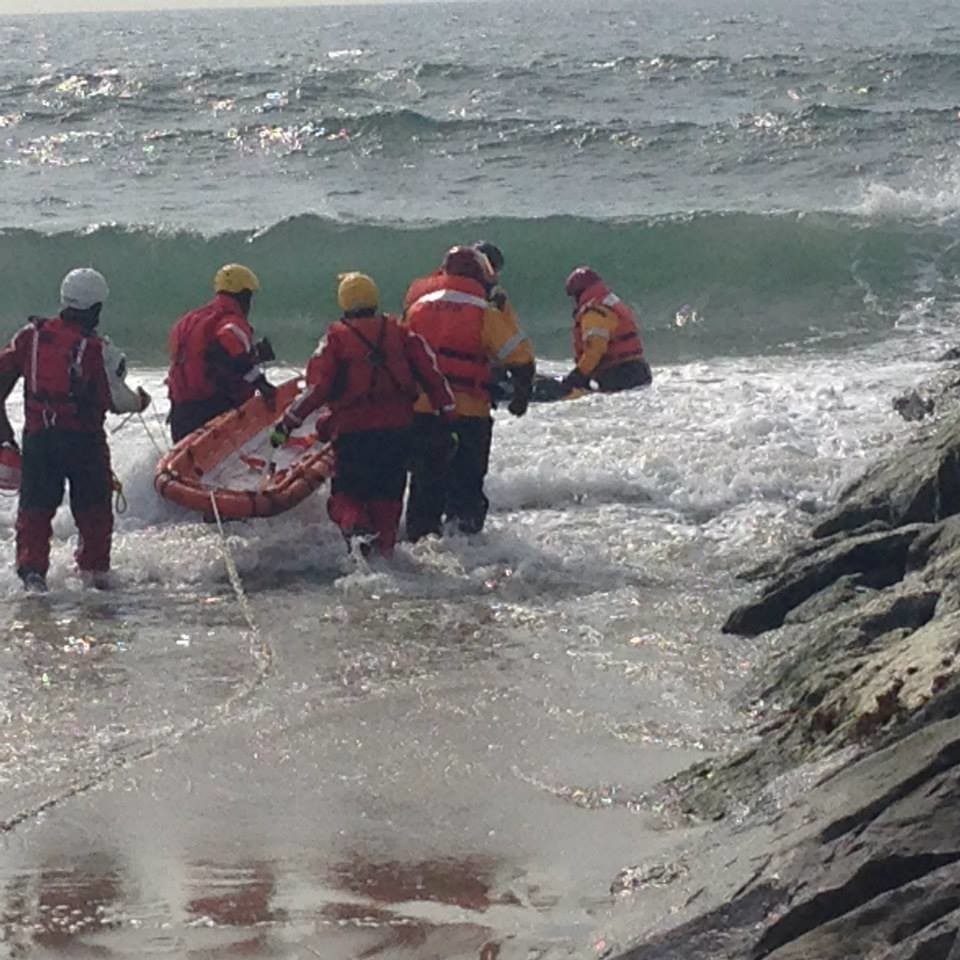Immersed in cold water rescues
Atlantic Beach Rescue Unit and Lawrence-Cedarhurst Fire Department take part in drills
It’s still cold on land and water temperatures remain just above freezing, but the Atlantic Beach Rescue Unit and the Lawrence-Cedarhurst Fire Department joined forces and conducted a water rescue drill last Sunday in preparation for when the local waterways are crowded with boats, kayaks, paddle boarders and personal watercraft.
“This drill is a refresher for our rescue and medical teams about the components necessary to provide the best possible outcome of a cold water immersion incident,” said LCFD Chief John McHugh. “It is imperative for the users of our waterways to understand that water will remain cold longer than previous years.” Sudden immersion in cold water without a wet- or drysuit could create a threat of immediate drowning, he added.
Cold water immersion rescue and treatment along with jetty and surf extractions were the focus of the March 22 event. Water rescue instructor Scott Zelentz, a retired lieutenant of the A.B. Rescue Unit and member of the Nassau County Firematic Water Rescue Association, addressed immersion/hypothermia physiology and pathophysiology through a slide and video presentation.
After putting on their drysuits the emergency responders took part in several realistic scenarios involving cold water immersion using safety equipment in 3-feet of surf with the water at 36° and the air temperature only one degree higher.
Atlantic Beach Rescue Jonathan Kohan said these drills are vital as cold water rescues are “extremely technical and can be dangerous for our rescuers.” Kohan said such preparation between two emergency organizations fosters education and communication. “Atlantic Beach Rescue Unit has been training and responding with the LCFD water team for many years along our common waterways, and our communities are safer as a result,” he said.
Nathan Etrog, current Atlantic Beach Fire District commissioner, a retired A.B. Rescue Unit captain and president of the county’s Firematic Water Rescue Association, said that practicing water rescues is what helps the responders understand what they can do, their strengths, weaknesses and limits. “[This] is what makes us an effective team and certainly prepares both agencies for the most challenging of rescues and allows us to function at a very high level to ensure the best possible outcome for each and every rescue,” Etrog said.

 41.0°,
Fair
41.0°,
Fair 




